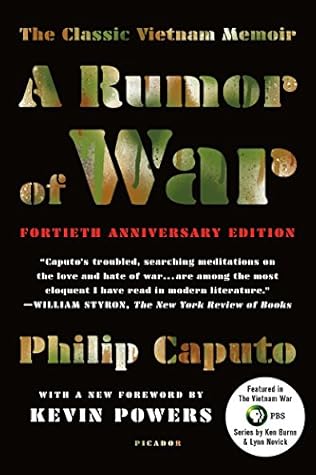More on this book
Community
Kindle Notes & Highlights
War is always attractive to young men who know nothing about it,
Most of all, we learned about death at an age when it is common to think of oneself as immortal. Everyone loses that illusion eventually, but in civilian life it is lost in installments over the years. We lost it all at
once and, in the span of months, passed from boyhood through manhood to a premature middle age. The knowledge of death, of the implacable limits placed on a man’s existence, severed us from our youth as irrevocably as a surgeon’s scissors had once severed us from the womb.
And men who do not expect to receive mercy eventually lose their inclination to grant it.
That is what I wanted, to find in a commonplace world a chance to live heroically. Having known nothing but security, comfort, and peace, I hungered for danger, challenges, and violence.
Napoleon once said that he could make men die for little pieces of ribbon. By the time the battalion left for Vietnam, I was ready to die for considerably less, for a few favorable remarks in a fitness report. Words.
There was nothing we could not do because we were Americans, and for the same reason, whatever we did was right.
They had already been where we were going, to that frontier between life and death, but none of us wanted to listen to them. So I guess every generation is doomed to fight its war, to endure the same old experiences, suffer the loss of the same old illusions, and learn the same old lessons on its own.
It was the inability to see that vexed us most. In that lies the jungle’s power to cause fear: it blinds. It arouses the same instinct that makes us apprehensive of places like attics and dark alleys.
It is interesting how the color green, which poets and songwriters always associate with youth and hope, can be so depressing when there is no other color to contrast with it.
It is then I realize that the destruction of Giao-Tri was more than an act of madness committed in the heat of battle. It was an act of retribution as well. These villagers aided the VC, and we taught them a lesson. We are learning to hate.
What we had found gave to the enemy the humanity I wished to deny him. It was comforting to realize that the Viet Cong were flesh and blood instead of the mysterious wraiths I had thought them to be; but this same realization aroused an abiding sense of remorse. These were men we had helped to kill, men whose deaths would afflict other people with irrevocable loss. None of the others said anything, but later, back at base camp, PFC Lockhart expressed what may have been a collective emotion. “They’re young men,” he told me. “They’re just like us, lieutenant. It’s always the young men who die.”
“When I was in Korea,” Colby said, “I saw men sight their rifles in by shooting at Korean farmers. Before you leave here, sir, you’re going to learn that one of the most brutal things in the world is your average nineteen-year-old American boy.”
There was only a slight chance of being killed in a headquarters unit, but Sullivan probably had not felt any intimations of mortality when he walked down to that river, a string of canteens jangling in his hand. Then the sniper centered the cross hairs on his telescopic sight, and all that Sullivan had ever been or would ever be, all of his thoughts, memories, and dreams were annihilated in an instant.
We had survived, but in war, a man does not have to be killed or wounded to become a casualty. His life, his sight, or limbs are not the only things he stands to lose.
The sensation of not being anymore came over me at night, just before falling asleep. Sometimes it made me laugh inside; I could not take myself seriously when I could already see my own death; nor, seeing their deaths as well, could I take others seriously. We were all the victims of a great practical joke played on us by God or Nature. Maybe that was why corpses always grinned. They saw the joke at the last moment.
That was the real crime a deserter committed: he ran out on his friends. And perhaps that was why, in spite of everything, we fought as hard as we did. We had no other choice. Desertion was unthinkable. Each of us fought for himself and for the men beside him. The only way out of Vietnam, besides death or wounds, was to fight your way out. We fought to live.
Of all the ugly sights I saw in Vietnam, that was one of the ugliest: the sudden disintegration of my platoon from a group of disciplined soldiers into an incendiary mob.


